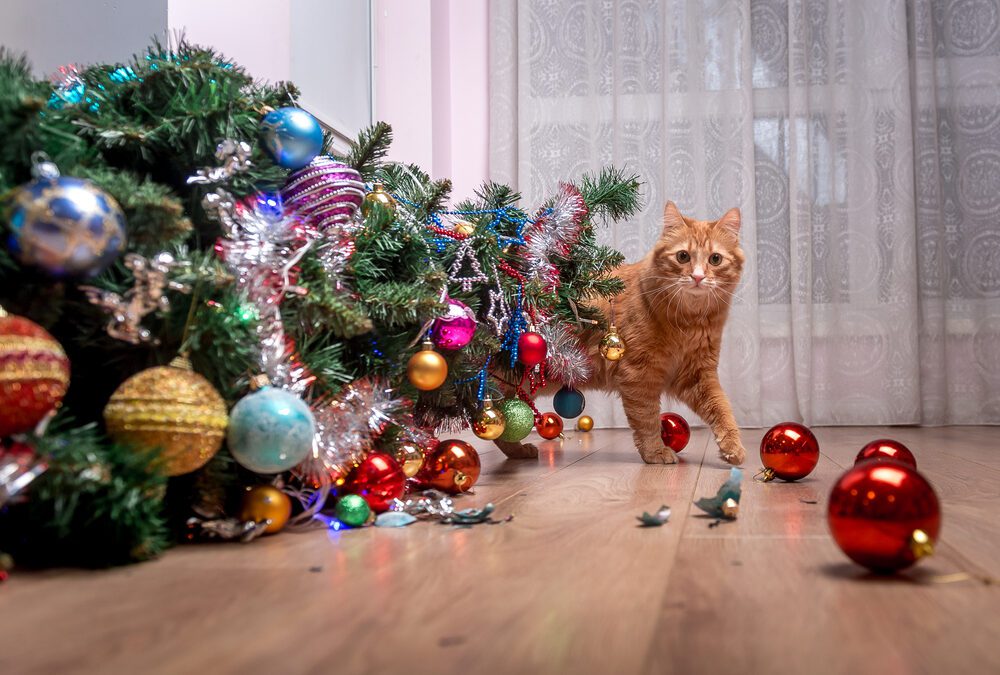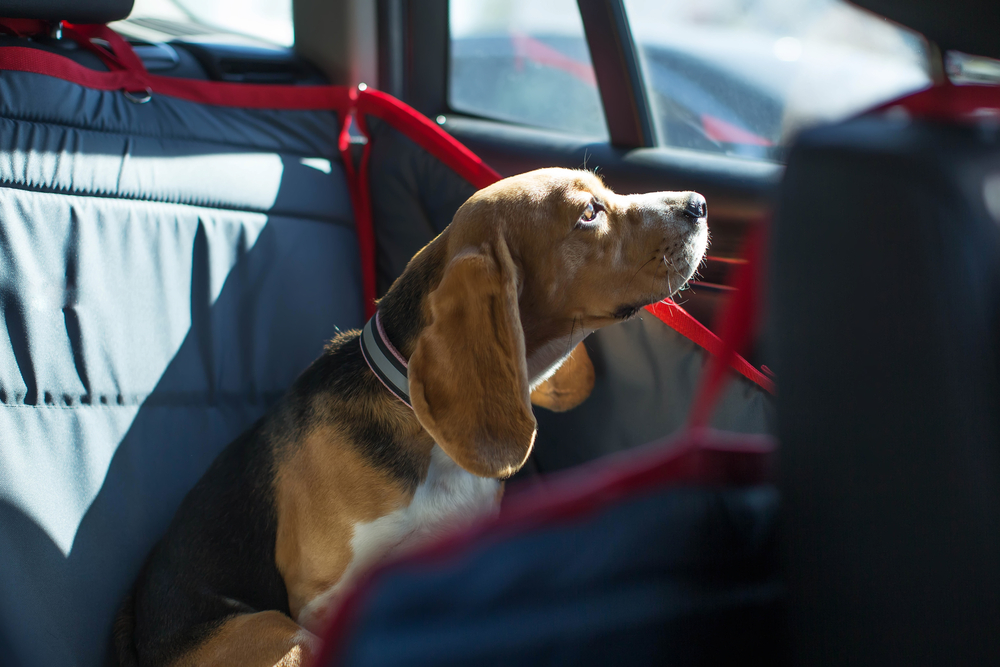The holidays are a wonderful time to eat decadent food and exchange gifts with friends and family, but the hustle and bustle that surrounds the season can lead to several hazards for your pet. Our team at Pioneer Animal Hospital would like to explain a few holiday hazards, to help you avoid dangerous risk factors and protect your pet during this holiday season.
#1: Holiday guests can be hazardous for your pet
Having friends and family over to toast the holidays can upset your pet’s routine and cause them stress. Take steps to help alleviate your pet’s risk, including:
- Create a safe zone — Designate an area where your pet can escape if the party atmosphere becomes too overwhelming. If your pet tends to be shy, restrict them to this area until your guests go home. You can leave music playing to help muffle the party noise, and provide a food-puzzle toy to keep them distracted.
- Identify your pet — Ensure your pet is properly identified so they can be returned to you should they sneak away while your visitors are arriving and departing. Microchipping is the best way to permanently identify your pet. They should also always wear a collar and identification tags that have your current contact information.
- Restrict your pet’s access to guests’ property — Place your guests’ coats and purses where your pet can’t access them, to ensure their curiosity doesn’t lead them to ingest a dangerous substance, such as medications or xylitol, found in sugar-free candy and gum.
#2: The Christmas tree can be hazardous for your pet
The Christmas tree is a quintessential part of the holidays, but this beautiful adornment poses several dangers for your pet.
- Tree stability — Curious pets will want to investigate this new addition to their home, and cats may attempt to climb the tree, causing the tree to fall, and potentially resulting in injury. Ensure you securely stabilize the tree by using a sturdy tree stand and tying the top or sides to a hook in the ceiling or adjacent wall.
- Decorations — Ornaments that break can damage your pet’s mouth or esophagus with their sharp edges, and tinsel, if ingested, can cause a gastrointestinal blockage that may require surgery to remove.
- Lights and cords — If your pet chews on electrical cords, they could receive an electrical shock. Use electrical cord covers and cord organizers to limit their exposure and make the cords less accessible.
- Tree water — The water used to hydrate the tree may contain fertilizers and bacteria that could harm your pet.
#3: Holiday plants and flowers can be hazardous for your pet
Decorative plants and flowers are a great way to brighten your home during the holiday season, but several plants are toxic to pets.
- Mistletoe — Holly and mistletoe contain toxic saponins and, if ingested, these plants cause severe gastrointestinal upset, including vomiting and diarrhea. Most pets exhibit signs that include lip smacking, drooling, and head shaking when they chew on these plants.
- Amaryllis — This beautiful red flower contains lycorine and other toxic substances, which can cause increased salivation, abdominal pain, vomiting, and diarrhea in cats and dogs.
- Lilies — Many lily varietals are toxic to pets, especially cats, causing oral irritation, gastrointestinal upset, and kidney failure. Every part of the plant, including the vase water, is toxic to pets.
#4: Holiday food can be hazardous for your pet
Any sudden alteration in your pet’s diet can result in gastrointestinal upset, but the fatty foods typically served during the holidays have the potential to trigger pancreatitis, a painful and possibly life-threatening condition. Other foods found on the holiday table are also harmful to pets.
- Turkey — The turkey skin is high in fat and can trigger a pancreatitis episode. In addition, the cooked turkey bones are extremely brittle, and can injure your pet’s mouth and esophagus if they splinter.
- Onions — Onions, chives, garlic, leeks, and shallots contain N-propyl disulfide, which causes oxidative damage to pet’s red blood cells, resulting in anemia. Signs include vomiting, lethargy, and pale mucous membranes.
- Grapes — Grapes and raisins contain an unknown toxin that causes kidney failure in pets.
- Chocolate — Chocolate contains caffeine and theobromine, which cause nervous system stimulation in pets. Signs include restlessness, vomiting, and diarrhea.
#5: Alcohol can be hazardous for your pet
Pets are extremely sensitive to alcohol, and a small amount can harm your cat or dog. Signs include incoordination, vomiting, diarrhea, and, in severe cases, coma or death.
#6: Holiday travel can be hazardous for your pet
You may not want to celebrate the holiday without your pet, but traveling with them can be dangerous.
- Traveling by car — When traveling by car, appropriately restrain your pet at all times when the vehicle is moving. Small pets should be kept in their carrier in a location away from air bags, and larger pets should be restrained using a well-fitted harness. In addition, never leave your pet unattended in a parked vehicle.
- Traveling by plane — Allow our veterinary professionals to perform a wellness check on your pet, to ensure they are healthy enough to fly. Do not allow your pet to be relegated to the cargo hold, which is an unpredictable and dangerous area for pets.
Avoid these holiday hazards to protect your pet this holiday season. If you would like your pet to receive a wellness exam or be microchipped before the festivities, contact our team at Pioneer Animal Hospital, to schedule an appointment.


